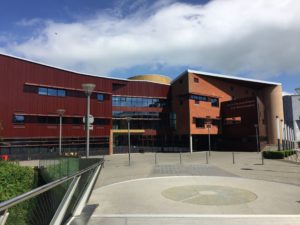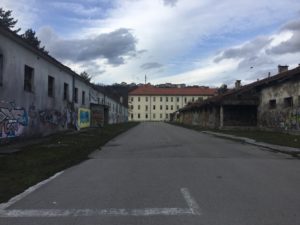Reasons for focusing on Education Policy
I have dedicated my research for the past six years to researching education policies for two primary reasons: first, education is a tool to approach causes of social justice and inequality motivates my passion, focus, and work ethic; and second, no matter the number of statistics used to evaluate these issues and our solutions to fixing them, we need to incorporate the thoughts and feelings of the parties involved.
Current Research
I am currently working on my thesis at the University of Oslo, focused on the role of higher education institutions in middle income countries in combatting climate change and contributing to socio-economic development. I am looking at the case of the African Research Universities Alliance (ARUA) Center of Excellence in Climate and Development. The exact research questions, theory and methodology are a work in progress. This project is focused primarily on the research functions of universities, the twin critical component of higher education to educating society.
Master’s Thesis (Jan. – Sept. 2017): “Who Should Foot the Bill: The extent to which Irish and German students value higher education as a public good”

Irish World Academy of Music and Dance, University of Limerick – May 25th, 2017
My Master’s thesis focuses on the impact of the funding of higher education on students in Ireland and Germany. I used data from the OECD, EUROSTUDENT, Eurobarometer, and conducted interviews with students in Ireland and Germany to develop my analysis. Most of the students I interviewed studied a semester or two abroad through ERASMUS and were able to compare university experiences between countries. Half of the students I interviewed were either German students who studied abroad in Ireland or Irish students who studied abroad in Germany. I asked questions to assess how much students needed to work, whether or not they lived with their parents, whether or not they receive grants or loans, and what their thoughts were on the amount they pay in fees for university.
I found that German students are content with the amount they personally spend on education, which is almost entirely subsidized. Some would pay a little more – perhaps €15 a semester – for the student clubs that they experienced at universities in Ireland and the UK. In addition, German students are satisfied with the option of loans because the government-backed loan system in Germany Irish students were also content with their annual fees of €3,000. They would compare how much they paid to what students in the US and the UK pay for higher education. However when I pointed out that German students pay at most €300 a semester, they began to question how much they pay.
Research in Sarajevo, Bosnia and Herzegovina (March, 2018):
With the opportunity to volunteer at a hostel in Sarajevo, Bosnia and Herzegovina, I made my way to the Balkans to interview university students on their experiences with paying for higher education. In the Balkan region, universities have a reputation for carrying a large amount of corruption. According to Chapman and Lindner (2016), a lack of public funding for higher education is one of the main contributing factors to high levels of corruption. Through interviews I conducted while there and evaluating other sources of data, I aim to assess the impact of public funding on levels of corruption and on student lifestyles and success in universities.

University of Sarajevo – March 15th, 2018
Please take a look at the “Methodology” page for my general philosophy on sources.
